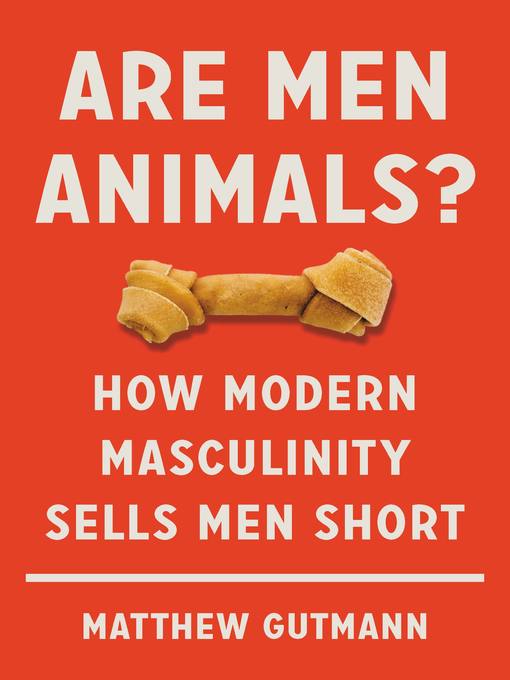
Are Men Animals?
How Modern Masculinity Sells Men Short
کتاب های مرتبط
- اطلاعات
- نقد و بررسی
- دیدگاه کاربران
نقد و بررسی

August 19, 2019
In this frustrated, one-note polemic, Brown University professor Gutmann (Breaking Rank) uses comparative cultural anthropology to debunk the idea that men’s sexual aggression, machismo, and violence are unavoidably determined by biology. He sees recent trends toward gender essentialism as a fearful cultural reaction to an unsettled “gender confusion” that has developed in response to feminism and gay and transgender concerns. Gutmann engages the animal theme in two ways, showing counterexamples to male-dominance behaviors in primates while also explaining why it’s incorrect to extrapolate from animal models to humans. He also demonstrates how relying on individual biology for explanations and creating solutions such as women-only subway cars lets men off the hook and fails to address broader social issues or to allow opportunities for men to make better individual choices. He is at his best when discussing personal experience, such as in his stories of divergent reactions to his fathering in rich urban and poor rural parts of Mexico. A vague discussion of epigenetics aimed at partially redeeming Western science’s input falls flat. Gutmann’s main point is argued convincingly enough, but his likely readership will already be on board; he provides too few ideas for change to elicit much more from them than bored agreement.

September 15, 2019
The evergreen argument of nature-vs.-nurture persists, this time regarding masculinity. "We need to be clearer about gender confusion," writes Gutmann (Anthropology/Brown Univ.; Fixing Men: Sex, Birth Control, and AIDS in Mexico, 2007, etc.) at the beginning, "better at distinguishing anxieties and limitations from expectations and choices, more determined than ever to untangle the fairy tales about men from the bodies and souls of real live men." To demonstrate the complexity of gender and the wide variability of human maleness across cultures, he cites the Muxe', a sort of "third gender" in Mexico; the ritualized homosexuality among the Sambia of New Guinea, where young boys must swallow the semen of older men in order to become adult males; and hijras in India, who "are people born anatomically male" but "achieve spiritual purity by sacrificing their sex organs to a Hindu goddess." As the author convincingly argues, assessing maleness means looking beyond biology, since biology alone cannot explain these variabilities. "Biological extremism about men and boys is nonsense," he writes. Throughout, Gutmann stresses that the expression "boys will be boys" gives males a free pass to engage in bad behavior. The real-world consequences of such thinking, writes the author, include the 2016 election of Donald Trump and the 2018 confirmation of Brett Kavanaugh to the U.S. Supreme Court. Such examples, appealing to some and anathema to others, do give the book a certain air of timeliness but may ultimately serve to date it. Gutmann's scope is impressive, as he also sheds light on contemporary Chinese gender negotiations in the section about "Blind Date Corner" in Shanghai; reveals some regional differences in male attitudes toward vasectomies; and tackles prevailing myths about the role of testosterone and its relation to violence. A smooth read that will give readers of either gender much to ponder--and to argue about.
COPYRIGHT(2019) Kirkus Reviews, ALL RIGHTS RESERVED.

























دیدگاه کاربران